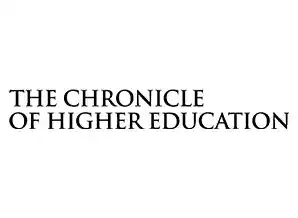October 13, 2023
A global online university aims to deepen its presence in the United States

By Goldie Blumenstyk
Seven months ago, the founder and president of the low-cost, all-online University of the People told me his next goal was to develop degrees in Spanish to better serve some of the millions of Venezuelan refugees around the world. This month, thanks to the folks behind the lucrative Yidan Prize, Shai Reshef found a way to fulfill that wish — and more.
Reshef has just been named the 2023 winner of the prize for education development. Along with new degree offerings in Spanish, he now plans to use a portion of the $3.8 million in total prize money to make the 15-year-old university a bigger player in the higher-education market here in the United States, arguing that it can fill the nation’s need for higher-ed options that are more affordable for working adults, immigrants, undocumented students, and others.
(Michelene Chi, a professor of science and teaching at Arizona State University, won the prize for education research for her work on applying active-learning approaches to teaching, and plans to use the institutional share of the money to build out professional-development offerings to help school teachers apply the work in their classrooms.)
The University of the People has been fascinating to me since it began, and honestly, I’ve been looking for a reason to follow up with Reshef since my last substantive coverage — a video interview with him six years ago. Back then, the university enrolled about 10,000 students. Enrollment has grown to 137,000 today, with most of the teaching and advising still handled by a team of volunteers now numbering more than 40,000 from around the world. That model, and its use of open-educational resources for all courses, are part of what keeps the university so affordable.
As has been the case from the start, serving refugees is still a vital part of its mission. Reshef said they now number about 16,500 of the overall enrollment, many of whom come from Syria. (The university teaches primarily in English but its bachelor’s degree in business is offered in Arabic; about 26,000 students take the program in that language.) As part of the United Nations Refugee Agency effort, the university has pledged to enroll 25,000 refugees by 2030, and Reshef said he expects it will have more than that well before then.
The university also serves students in other dire circumstances. Right now, for example, it’s teaching about 3,000 women in Afghanistan despite the Taliban’s prohibitions against women getting an education. “We actually ask them not to leave their homes,” for their own protection, Reshef told me. And it allows them to enroll under fake names. He said more than 20,000 women from Afghanistan have applied: “We wish we had the funding to serve all of them.”
The university doesn’t charge tuition but assesses an examination fee for each course; the overall cost to students adds up to less than $2,500 for an associate degree, under $5,000 for a bachelor’s, and under $4,000 for a master’s. Scholarships cover the costs of those fees for the Afghani women — and many others. But Reshef said the need far outweighs the university’s resources.
Aside from an anonymous $10-million gift in 2021, this $3.8-million prize is the biggest gift the university has ever received. (The Yidan Prize money is awarded as a split between the winners and their institutions; Reshef is donating his share to the university.) Improved fund raising is a major priority for the university. It employs 500 people around the world and one of them is a new VP for advancement. Last year it also brought on a veteran academic leader, Marie Cini, as its provost, to help it gain regional accreditation. It’s been accredited by the Distance Education Accrediting Commission since 2014.
The university’s mission and cost structure have always been compelling to me — in many ways a model for other colleges on how an institution can live out its values. Beyond that, I was never quite sure what to make of its impact in the United States.
With this prize money, Reshef seems determined to make that mark clearer. He plans to develop a new bachelor’s in general studies that he hopes will appeal to American students, including some of the 40 million with some college but no degree.
Reshef also told me he wants to expand the university’s share of American students from 20 percent of its overall enrollment to 30 percent, both to “open the door wider” to populations here that could use the affordable option and to reinforce the university’s reputation as an American institution. People from around the world, he said, “want to study at an American university with American students.”
